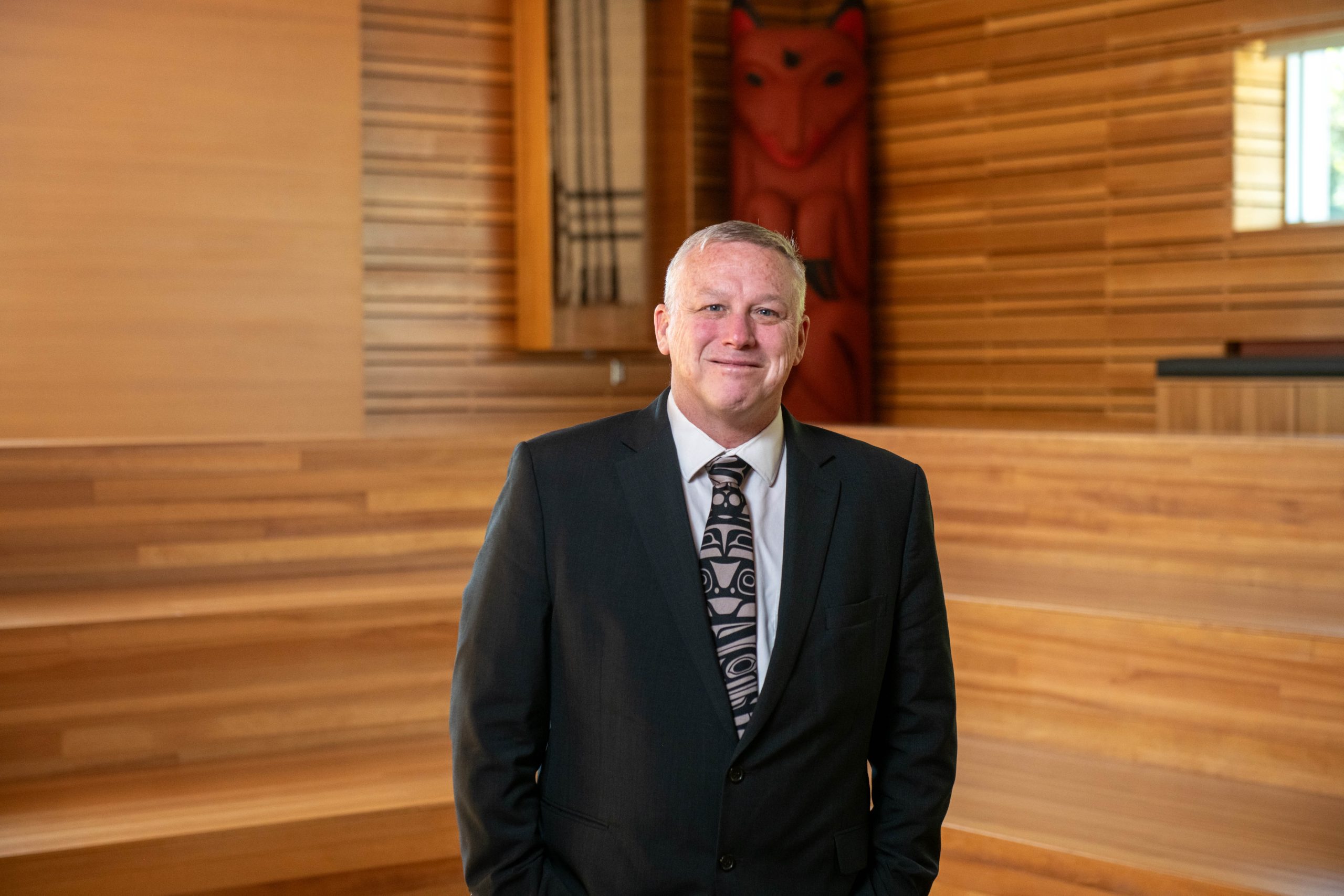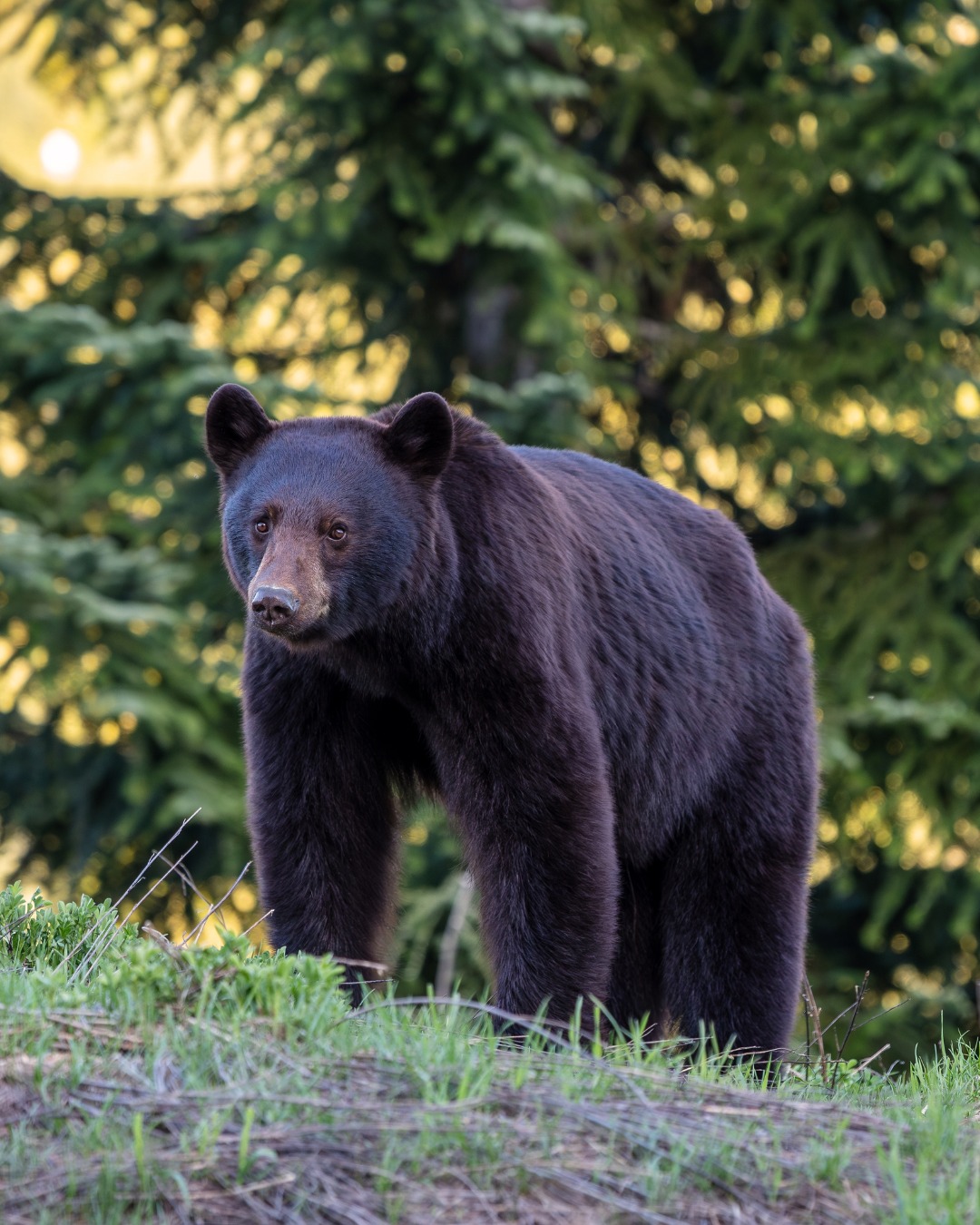Langley -JUNE 15 UPDATE – The Supreme Court of Canada says societies governing the legal profession have the right to deny accreditation to a proposed law school at Trinity Western University.
The high court says law societies in Ontario and British Columbia were entitled to ensure equal access to the bar and prevent harm to lesbian, gay, bisexual, transgender and queer students.
The SCOC stated that the cases pitted two significant societal values – freedom of religion and promotion of equality – against one another. That was not acceptable.
TWU wanted law students to agree to their covenant which abstains from same sex behavior and relationships.
TWU has over 4000 students.
The Provincial Government in Victoria issued a statement by Melanie Mark, Minister of Advanced Education, Skills and Training, in response to the decisions regarding the Law Society of British Columbia vs. Trinity Western University, and Trinity Western University vs. Law Society of Upper Canada, released Friday, June 15, 2018, by the Supreme Court of Canada:
“Government has been following this case as it worked its way through the courts. The decisions just came down, and we will be taking the time to carefully review the rulings, but it appears consistent with our government’s values. Our government continues to work to build a just and inclusive province where all feel welcome, regardless of their sexual orientation, gender identity, race, religion or background.”
The official TWU media release:
Trinity Western University (TWU) is disappointed by the Supreme Court’s decision today, which diminishes the value of pluralistic diversity in Canada. In a very long complex ruling, with four sets of reasons, eight of nine judges agree that TWU’s religious freedom is violated but the majority still uphold the law societies’ decision not to approve the law school.
The Court ruling constrains TWU’s quest to establish a law school and offer 60 new law school seats to Canadian students.
“We feel this is a lost opportunity for Canadians, many of whom do not have affordable access to justice,” says Earl Phillips, executive director of TWU’s proposed law school. “There are only three common law schools in Canada that offer a course in charity law. The TWU law school would have offered a specialty in charity law. Because Canada has the second largest charitable and non-profit sector in the world, this loss stands to impact Canadians coast to coast.”
Until now, Canada has always encouraged the rich mosaic created by the diversity of views, race, gender and belief systems in this country. Regrettably, the Supreme Court’s decision limits the contribution of faith communities to Canadian society.
“Without question, the Trinity Western community is disappointed by this ruling. However, all Canadians should be troubled by today’s decision that sets a precedent for how the courts will interpret and apply Charter rights and equality rights going forward,” said Phillips.
TWU aimed to meet the demand for more law school spaces in Canada. It also proposed a unique law school with specializations in non-profit charity law and small-business law, which are not available to Canadian law students today. Above all, the university sought to graduate caring and trustworthy lawyers ready to represent and advocate for all Canadians, regardless of race, gender, religion or sexual identification.
TWU Law School Timeline
|
2012 |
The university begins steps toward opening a law school. |
|
2013 |
TWU follows the provincial approved process for establishing a new post-secondary education program and receives approval from the Federation of Law Societies of Canada and the BC Ministry of Advanced Education. |
|
2014 |
BC Ministry of Advanced Education revokes its approval following a reversal of support by the BC Law Society. |
|
2015 |
BC Supreme Court rules in favour of TWU’s right to open and operate a law school. |
|
2016 |
BC Court of Appeal upholds TWU’s right to open and operate a law school. |
|
2017 |
Facing continued opposition from the Law Society of BC and the Law Society of Ontario, the university takes its case to the Supreme Court of Canada in November to seek a resolution. |
|
2018 |
Supreme Court of Canada delivers its ruling against the university |
“Today’s announcement marks a new chapter for Trinity Western University and other niche educational institutions and charities in Canada. This journey about the law school has been a long process, during which our community has been both challenged and encouraged in their faith,” says Phillips.
The university is reviewing the ruling in detail with its legal team and considering next steps.
TWU posted this video and comment on their Facebook page: Until now, Canada has encouraged the rich mosaic created by the diversity of views, race, gender, and belief systems. Sadly, the Supreme Court has decided that this does not extend to a law school at Trinity Western University.
https://www.facebook.com/trinitywestern/videos/1804005572975840/
ADF International whose mandate is to build alliances and engages in legal advocacy to protect and promote religious freedom throughout Europe, Asia, the Americas, Africa, and Oceania, was not happy with the decision. ADF is based in Vienna:
The Supreme Court of Canada dealt a major blow to religious freedom and freedom of association, ruling that law societies in Canada may deny accreditation to a Christian law school. The judgment comes after a long legal battle in several provinces. Trinity Western University’s law school asks students and faculty to follow its “Community Covenant” based on biblical views of appropriate sexual behaviour on campus. This covenant was deemed discriminatory by some law societies, leading to a denial of accreditation.
“The Supreme Court of Canada has abandoned the promise of freedom that led to the creation of the Canadian Charter of Rights and Freedoms 36 years ago. Individuals will need to turn to their legislators to protect freedom of religion”, said Gerald Chipeur, Q.C. of the Canadian firm Miller Thompson, LLP, and one of more than 3,000 lawyers allied with ADF International.
Two justices, Russell Brown and Suzanne Côté, dissented, expressing the view that “legislatively accommodated and Charter-protected religious practices, once exercised, cannot be cited by a state-actor as a reason justifying the exclusion of a religious community from public recognition. Approval of [Trinity Western University’s] proposed law school would not represent a state preference for evangelical Christianity, but rather a recognition of the state’s duty—which [the law society of British Columbia] failed to observe—to accommodate diverse religious beliefs without scrutinizing their content.”
JUNE 14, 2018 UPDATE – It is expected that the Supreme Court of Canada will hand down their decision on Friday. The argument is, can TWU a private, evangelical Christian post-secondary institution, operate their law school at its Langley campus, including their rules against LGBTQ friendly students . The legal argument is that TWU discriminates due to their insistence that same sex students can not have a spot in their law school and must obey the covenant.
The BC Law Society as well as the similar societies in Nova Scotia and Ontario argue that this discriminates against LGBT people.
In B.C. and Nova Scotia, the courts have sided with TWU, ruling the university has the right to act on its beliefs as long as there is no evidence of harm.
Ontario’s court of appeal ruled against TWU.
This has gone to the SCOC in Ottawa and the decision is forthcoming. TWU believed the SCOC will rule in their favour.
DECEMBER 1 2017 UPDATE – The oral argument for TWU is over at the Supreme Court of Canada. Trinity Western University tweeted that Friday afternoon.
Trinity Western @TrinityWestern After today’s oral argument, Trinity Western University is optimistic that the Supreme Court will support TWU Law–Canada’s first law school to focus on charity law: http://bit.ly/2ztWV1K #TWULaw
NOVEMBER 29 UPDATE – Trinity Western University released a statement prior to their SCOC court hearing which is scheduled for November 30 and December 1: Trinity Western University (TWU), a small Christian university located in British Columbia, will appear before the Supreme Court this week to argue that it should be able to open a law school. The oral argument, which involves TWU, the Law Society of British Columbia, the Law Society of Upper Canada and an unprecedented number of interveners, will take place in Ottawa over the course of two days on November 30 and December 1.
“Our law school will not rely on taxpayer funding and will provide access to justice to many Canadians,” said Earl Phillips, executive director of TWU’s proposed School of Law. “The law school will also offer a concentration in charity law, at a time when non-profits are the second fastest growing sector in Canada. Of the 21 common law schools in Canada only three offer charity law courses and none offer a specialty.”
TWU applied to open the law school since 2012 but opponents argue that its distinctly Christian approach and community covenant are discriminatory. The covenant, a 2,000-word document which calls for all who attend and work at TWU to “cultivate Christian virtues, such as love, joy, peace, patience, kindness, goodness, faithfulness, gentleness, self-control, compassion, humility, forgiveness, peacemaking, mercy and justice,” also defines marriage as a union between a man and a woman.
“Not a single student has ever been expelled for being a member of the LGTBQ+ community. All we ask is that, while at TWU, students live according to our community covenant,” says TWU President Bob Kuhn. “We believe this case is not just about TWU. This case is about freedom for all faith communities and other minorities in Canada. As the BC Court of Appeal stated when it decided in favour of the law school, ‘a society that does not admit of and accommodate differences cannot be a free and democratic society’.”
Brayden Volkenant and Jessie Legaree are TWU Alumni who are now pursuing careers in law. Both Legaree and Volkenant would have applied to the TWU School of Law to continue their education at TWU if the opportunity had been available. They are both available for media comment.
“A TWU law school graduate would receive the same quality legal training as a lawyer from other Canadian law schools. The law is the same, no matter where you study it,” says Jessie Legaree, a law school graduate from the University of Toronto and a practicing lawyer in Abbotsford, BC.
Founded in 1962, Trinity Western University offers liberal arts and sciences, as well as professional schools in business, nursing, education, human kinetics, graduate studies, and arts, media and culture.
SPOKESPERSONS AT THE COURT IN OTTAWA FOR INTERVIEWS:
Bob Kuhn – President of Trinity Western University
Earl Phillips – Executive Director of proposed TWU School of Law
Janet Epp Buckingham – Director of TWU’s Laurentian Leadership Centre in Ottawa
Brayden Volkenant – Petitioner in the case, law student and TWU alumni
Jessie Legaree – Affiant in the case, practicing lawyer and TWU alumni
NOVEMBER 25, 2017 UPDATE – The fight to have full accreditation for the Law School of Langley’s Trinity Western University, now heads to the SCOC Supreme Count Of Canada. There are two appeals the are happening simultaneously. TWU is appealing am Ontario decision in Ontario that favored the Ontario law society. Their concern was the Community Covenant that forces students to honour the value of the school. That excludes same sex students from having a spot in the law school.
In June 2016, the B.C. Supreme Court ruled the BC law society had acted improperly in holding the referendum which was based on the Covenant and not on the value of the TWU Law School. That was the result of a three year legal fight that has not gone away.
In November 2016, the B.C. Court of Appeal ruled that graduates from Trinity Western University must be given accreditation in British Columbia.
(NOTE – The covenant requires all students to sign a document pledging to abstain from sex outside of marriage between a man and a woman ie same sex.)
Both cases will now move to the highest court of the land next Thursday and Friday. The bottom line is whether the students can practice law in both Ontario and BC regardless of the covenant and how the two Provincial Law Societies fell about same sex couples.
NOVEMBER 1 2016 UPDATE – The B.C. Court of Appeal ruled that graduates from Trinity Western University must be given accreditation in British Columbia.
At issue is Trinity Western University‘s community covenant which all students must sign, saying they will not participate in sexual intimacy outside of a heterosexual marriage.
The Appellate Court ruled the Law Society’s decision not to accredit TWU law graduates was “unreasonable” because it would limit freedom of religion.
Here is the official response from TWU:
Trinity Western University is pleased with the B.C. Court of Appeal’s decision today. The court dismissed an appeal of an earlier decision in favour of TWU by Chief Justice Hinkson. This will allow graduates of the university’s proposed law school to practice in B.C.
The Court of Appeal, in reaching its decision, concluded the following: “The Law Society’s decision not to approve TWU’s faculty of law denies these evangelical Christians the ability to exercise fundamental religious and associative rights which would otherwise be assured to them under section 2 of the Charter.”
“The Court of Appeal unanimously agreed that the Community Covenant is not a breach of the Charter of Rights and Freedoms,” said Earl Phillips, the executive director of TWU’s proposed School of Law. “It is not unlawful discrimination. Further, they ruled that the majority must not be allowed to defeat the rights of the minority TWU community to honour its own values. Members of that community are entitled to make space to exercise their religious convictions.”
The private university in Langley plans to open a law school that will offer 60 additional law school spots and fill a void in Canadian legal education. TWU’s School of Law will offer specializations in charity law and small-business law. Although both require specialized skills and are particularly sought after in the Lower Mainland, some Canadian law schools don’t offer courses in charity law. TWU would be the first law school in Canada to offer such a specialization.
“Our teachers, nurses and business graduates in particular are already sought after for their compassion, integrity, training, and skill,” said Earl Phillips, the executive director of TWU’s proposed School of Law. “I look forward to seeing the extraordinary difference that graduates of TWU’s School of Law will make.”
“Everyone, religious or not, should celebrate this decision as a protection of our Canadian identity,” says Amy Robertson, a university spokesperson. “The freedom to believe as we choose and practice accordingly is one of the most profound privileges we have as Canadians. We are a diverse, pluralistic society, committed to respecting one another even when we disagree. This is something people in many other countries don’t enjoy.”
TWU received approval to open a law school from the B.C. Ministry of Advanced Education in December 2013. The B.C. Law Society initially approved of TWU’s plans, but later withdrew approval after a members’ referendum in 2014. TWU took the decision to court, and in December 2015, the B.C. Supreme Court ruled the law society had acted improperly in holding the referendum. In June 2016, the B.C. Court of Appeal heard the case.
The B.C. Law Society does not dispute the quality of TWU’s proposed law school or graduates. The legal challenge surrounds TWU’s Community Covenant, which asks students to live according to Christian values, including honesty and integrity. It also asks students to abstain from sexual intimacy outside of marriage, which it defines as between a man and a woman.
TWU is a small, Christian university. All students, including LGBTQ students, are welcome to attend and be open about their identities as long as they abide by the Community Covenant. “Based on my conversations with others in the TWU community, I know that LGBTQ students attend TWU, and find it a safe, welcoming place,” says Robertson.
TWU has faced similar cases in Nova Scotia and Ontario. In July, it was successful in its case in Nova Scotia, and the Nova Scotia Barristers’ Society has chosen not to appeal that decision. In June, the Ontario Court of Appeal found that the Law Society of Upper Canada had violated the religious freedom of TWU and its graduates, but still decided in favour of the LSUC. TWU is challenging that decision in the Supreme Court of Canada.
ORIGINAL STORY – The British Columbia Court of Appeal is expected to rule Tuesday on whether graduates of a proposed law school at a Christian university would be allowed to work in B.C.
The decision marks the latest development in Trinity Western University’s quest to clinch cross-country accreditation for its future lawyers.
The Law Society of B.C. opted to not recognize future graduates because of Trinity’s requirement that students sign a so-called community covenant pledging that sexual intimacy should only occur within a heterosexual marriage.
The society said the policy discriminates against gays and lesbians hoping to enter the legal profession.
Late last year, B.C. Supreme Court ruled in favour of TWU.
Trinity’s code of conduct has stirred up controversy elsewhere, with both Nova Scotia and Ontario’s law societies challenging the school’s push for recognition.






